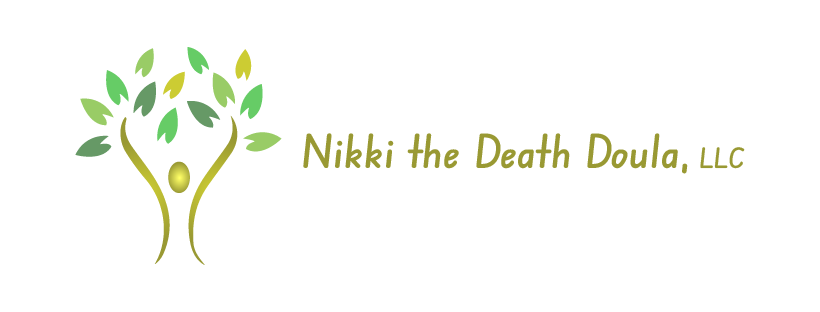Common Misconceptions About Death Doulas
When people hear the term “death doula,” they often picture something out of a gothic novel—maybe a mysterious figure cloaked in black, whispering ominous farewells. Or they assume we’re the Grim Reaper’s personal assistants, handing out scythes and existential dread. (I get my fair share of the side eye and some “bless your heart”s) But the reality is far from those myths. We are compassionate guides who provide emotional, practical, and spiritual support for the dying and their loved ones. And yet, misconceptions persist. Let’s clear a few of them up. And please; share these with your friends!
1. Death Doulas Are Only for the Actively Dying
Many people think death doulas only step in during the final hours of life, like a last-minute crisis team. While we certainly help during that time, our work often begins much earlier. We assist with end-of-life planning, legacy projects, emotional processing, and caregiver support—sometimes months or even years before death. It’s not about the destination, it’s about the journey, and the journey isn’t just about the last breath; it’s about ensuring the entire transition is as peaceful and intentional as possible.
2. We Replace Hospice or Medical Care
Dear lord, no. That’s not something any one person can undertake!! Death doulas do not provide medical care, administer medication, or replace hospice. Instead, we complement those services. Hospice focuses on medical needs, while death doulas focus on the emotional, spiritual, and logistical aspects of dying. Think of us as the bridge between the clinical and the deeply personal—holding space, facilitating conversations, and helping families navigate the process with less fear and more connection. As much as hospice teams would probably like to stay with you when you need it most, truth is they have many patients and can’t spare the time that doulas can.
3. It’s Only for People Who Are Religious or Spiritual
Some people assume that because we discuss death and meaning, we must all be spiritual guides or heavily tied to religious rituals. While some death doulas can incorporate faith-based elements (if requested), many of us work with people of all beliefs—including atheists, agnostics, and those who simply don’t know what they believe. There’s no one-size-fits-all approach to dying, and our role is to honor whatever is meaningful to you. I personally have had people of many different faiths and beliefs.
4. It’s Morbid and Depressing Work
This is one of the biggest myths. Yes, death is a heavy subject, but working as a death doula is often filled with beauty, humor, and profound connection. We don’t walk around in perpetual sorrow; we laugh, celebrate lives, and create meaningful moments. Facing death head-on doesn’t increase fear—it usually reduces it. And for many, that brings incredible peace. (And I’ll admit I have been the instigator of some deep belly laughs at bedside more than once)
5. Death Doulas Are Only for the Dying
While we primarily support those at the end of life, our work extends to their loved ones too. Caregivers, family members, and friends often need just as much guidance, whether it's practical help navigating the system, emotional support, or grief coaching. Death affects everyone in the room, not just the person taking their last breath.
Final Thoughts
Death doulas are here to make the process of dying less frightening, not more. We don’t predict death, we don’t speed it up, and we certainly don’t walk around with a crystal ball. Instead, we provide comfort, guidance, and advocacy during one of life’s most profound transitions. By breaking down these misconceptions, I just hope more people will feel empowered to embrace end-of-life support—without the myths getting in the way.
So, if you’ve ever wondered what a death doula really does, here’s the simple answer: We bring compassion where it’s needed most. And no, we don’t carry scythes. I mean, unless you want me to. I’m open to ideas.
If you want to learn more about how I can help, please don’t hesitate to reach out! Click here for more information.
